Changes in Magic are happening faster than ever. In 2021, I wrote an article named The New Era of Magic: The Gathering , where I spoke on some crucial points that had changed in the game's culture.
Now, in 2023, there is a need to debate some of the thorniest issues of recent years, even when they are very uncomfortable for the community. And given the proportions that some of them have taken, creating a separate article for these topics allows me to elaborate on them in greater depth.
With the announcement made this Monday (23) of a new segment of the Universes Beyond series with comic book and movies giant, Marvel, with products comparable to The Lord of the Rings: Tales of Middle-earth, Wizards of the Coast takes another huge step in connecting its most profitable franchise with one of the most famous titles in pop culture and raises the discussion: is Universes Beyond and collaboration with other franchises the future of Magic?
The answer is getting closer and closer to being a "yes", and in this article, I delve into what it means for Wizards, the game, and the community!
Before we begin...
Before we begin, I leave a brief disclaimer about my perspective: my article, and the arguments presented in it, are not intended to disparage Universes Beyond's products - it must be admitted that they are some of the best launched in recent history - and they do not intend to establish a value judgment on the frustration of a portion of the Magic community that feels uncomfortable, not to say offended, with the recent attempts by Hasbro and WotC to unite their game with other famous franchises.
With that hurdle out of the way, all discussion about the future and recent decisions surrounding it leads to the same place:
Magic is a product to be sold
Magic: The Gathering is one of the main brands of Wizards of the Coast, today a subsidiary of Hasbro, a megacorporation that has a dozen successful titles in its range, where the card game has surpassed the sales of other famous franchises, such as Transformers, and reached the title of billion-dollar brand in annual sales in February 2023.
The market for sealed Magic products, especially outside traditional releases, has been, for over a decade, a game of trial and error - From the Vault, Duel Decks, Toolkits, Challenger Decks, Guild Kits, Master Sets and others had their ups and downs, and were focused on introducing new sales modalities that leveraged the quarterly and annual income acquired with the brand - some stood out with considerable success, others with absolute failure.
Since 2019, Wizards has taken bolder initiatives to sell the card game: while Throne of Eldraine began the Collector Boosters trend and the amplification of variants that would become a standard in future releases, the company was also looking for new methods of communicating with collectors through the Secret Lair line.
The formula worked: Magic has never sold as much as in recent years, and much of it is due - even when criticized by the public and content creators - to the considerable increase in different categories of products available each year, which led Magic to grow even in the face of challenges and setbacks that occurred during the pandemic.

In 2020, Wizards launched its first cross-over in the segment, although it did not yet have its current name. Secret Lair x The Walking Dead was ill-received, not only for bringing an "outside" universe to the game, but also for introducing cards with unique abilities and mechanics in a premium product. It was only in February 2021 that the company made the Universes Beyond series official and established a reprint policy for cards exclusive to Secret Lair, where "in-game" versions would be added to boosters a few months after the release of the original card.
Two years later, Magic released its first complete Universes Beyond set with The Lord of the Rings: Tales of Middle-earth. With boosters, Commander decks and other items available, in addition to the cards being legal in the Modern format, LotR has already become the second best-selling set in the game's 30-year history. What we see today is that Wizards learned valuable lessons when introducing this segment to the public (through the Warhammer 40,000 decks), instead of keeping it exclusive to Secret Lairs - the natural consequence is that, for To reproduce the success which they achieved with J.R.R. Tolkien's iconic saga, the company will place more bets on franchises that are globally recognized.
After all, Magic is a product, Wizards is a subsidiary and Hasbro, like every company, aims to make a profit and enhance the name of its brands as a worldwide reference in the field of entertainment and collectibles - and the card game, today, is one of the strongest product in its catalog. Most decisions made lately follow this reasoning.
More franchises = More visibility
The most attractive point of investing in the Universes Beyond series is the visibility it gives to Magic: The Gathering, which amplifies potential consumers who can, through these franchises, experience the TCG and, with luck, become the audience that will buy other products beyond those sets - and even if they are limited to the Universes Beyond product from their favorite franchise, that is already a considerable increase in growth and sales.
The example here is more difficult for most people reading this article, since we all share the MTG universe as a common ground. But if we ask a wider audience about Magic, most answers will be that they've never heard of the game or, with older people, that they played it or had some cards back at school or college.
Try asking these same people about some of the franchises that WotC has worked on and/or is working on: The Walking Dead? Most watched up to a certain season. League of Legends? Many people know it, but not everyone is a customer. Assassin's Creed and Final Fantasy are two of the most famous video game franchises of recent decades, Fallout is not far behind, Jurassic Park is a cinema classic, and Marvel's impact on pop culture needs no comment.
Magic is less famous than a portion of the titles it has worked on to date, and ever since they announced the collaboration with The Lord of the Rings, there's been a feeling that the game needs many of these brands more than these brands needs MTG - It's a beneficial integration of two pop culture media, which moves a ton of money in and out of the game, but the one who gains real visibility in this exchange with the most famous franchises is Wizards' product. These are fans of other universes being integrated into the TCG and becoming consumers of one of the most famous analog games in the world.
The TCG market has grown noticeably these past few years, and Magic has grown exponentially since 2018. Still, the times the game has appeared in pop culture have been insignificant, and after the failure of trying to integrate the game into the eSports scene, Hasbro's investment seems to be inserting its current most profitable brand into the pop culture, and there is no more efficient method than collaborating with other equally or even more well-known brands to "spread the word" beyond its borders.
Innovation vs. Tradition: Is Magic losing its essence?
One of the most frequent buzzes when an Universes Beyond product, or a collaboration in a regular set - like the Transformers cards in The Brothers' War - are announced is the concern that Magic is losing its essence, and giving up its thirty years history for the sake of short-term profit, which will harm the game's long-term health and lead it to ruin.
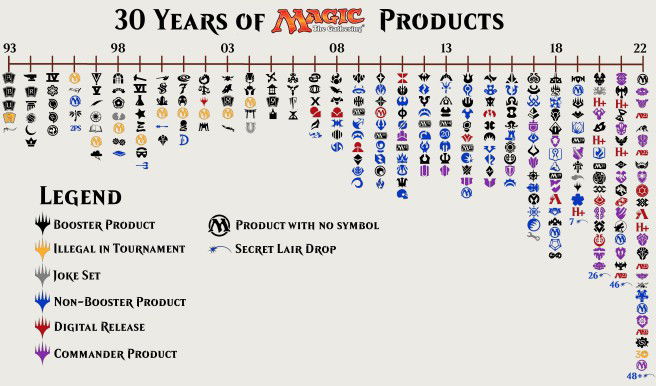
The debate about Wizards' most recent actions harming Magic's longevity is one of the most pertinent, commonly driven by the excess of products announced and/or launched in a single year window, to the point of being reported by Bank of America as a long-term investment risk - as exemplified above, the game's business model has changed a lot since 2019.
The players' relationship with MTG, just like the relationship between any group with brands that have existed for decades - especially in the geek scene - is one of aversion to changes, because they alter the status quo that this audience is accustomed to. How many times have we seen posts on social media claiming that Magic is dead, or announcing the game's fateful apocalypse? It's not very different from what Marvel or Square Enix, for example, face with any substantial change in their most famous franchises.
So, would Universes Beyond be one of those things that would kill Magic, or worse, take away its essence in exchange for short-term profit? No, or at least, not exactly. The idea of this series is to attract other audiences to try and play Wizards of the Coast's main product - a commercial decision, like many that have occurred in the thirty years that MTG has existed since Richard Garfield created it.
After all, what constitutes Magic's essence? If we base ourselves on the lore, the very concept of Planeswalkers and the game's narratives have changed a lot since its conception: we went from the Brothers' War to the idea that Planeswalkers were figures close to omnipotence at war against Phyrexia, and then we started to have several distinct stories in a block system, with a larger plot that took years to come together, until we reached what we have today - the Post-Mending era, where Planeswalkers are mortal beings with specific powers that make them closer to superheroes than absolute forces.
The pillar of Magic today is its system of rules integrated into a diverse environment, with broad game modalities and countless ways to express and/or compete in it, with diverse strategies, themes and viable archetypes. This is the only element that, even in the face of so many changes, remains established, being the main reason why people become interested and fall in love with the game. It is the product's very core, and as long as it stays the same or doesn't change beyond recognition, there will still be room to attract players, new or old.
Innovation, in addition to the ability to be bold in the face of an already well-established product, have become priorities in the face of a thirty-year tradition that, despite maintaining a loyal public, is not attractive for building bridges with new consumers, and MTG is looking for new blood, capable to bring results in the project of bringing the TCG to the same level as other pop culture superstars.
For older fans and lovers of a more traditionalist era who are opposed to such changes, there are some options left, such as entering environments or formats where these cross-overs do not affect, or even looking for other games and/or franchises that maintain a more traditional style, closer to what they are looking for - Flesh and Blood, from Legend Story Studios, is one of these and does an exemplary job of listening to the community's concerns so far.
Hasbro won't feel the need to return Magic to what it was unless it suffers an abysmal collapse, and at this point, with the bets the company has made with the brand, a collapse could mean the end of the game, regardless of its history.
There is a long list of mistakes and specific problems that they have made and that, in the long term, could, indeed, destroy the confidence of Magic's clientele in the next five or ten years, and while Universes Beyond goes through one of the most dangerous issues - the overload of new products that causes fatigue and/or difficult its audience to keep up to date with everything that happens in the game - it is not the source of the problem.
Magic isn't Fortnite: how to keep the new influx of players engaged?
There is a common term used on social media to define what is happening with MTG today, through Universes Beyond - "Fortnite-ification". It comes from the business model used by the multiplayer battle royale game, Fortnite, with which Magic has already done a cross-over in a Secret Lair product.
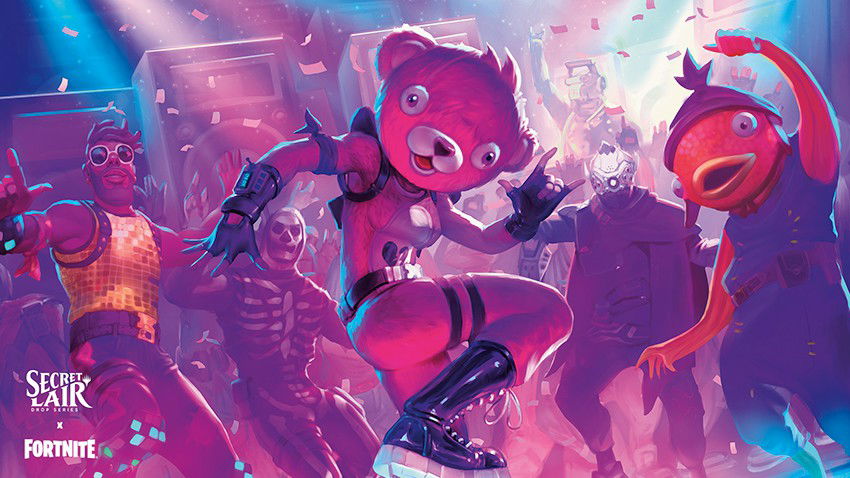
The Epic Games game has a wide array of collaborations with other brands, games and even celebrities, and is known for the diversity of character skins available. One of the main criticisms of this direction that MTG has taken is its proximity to becoming the 'Fortnite' of TCGs - For others, this idea is exciting because it attracts a greater flow of players, and establishes a connection between different communities.
If we assume that Magic continues to invest heavily in the cross-over business, it will face a huge long-term obstacle: there are a limited number of partnerships they can make, and working with other companies brings limitations in design, development and creativity in the direction that the game can take, in addition to the difficulty of reconciling mechanics and themes to make them fluid in the same environment - After all, the product needs to meet the interests of both companies, and still be attractive to the consumer.
Therefore, WotC would always need to look for new brands to work with, or reuse those it has already worked with to create new products, a formula that could achieve success a second or third time, but does not operate on its own as a standard model of business for a TCG without creating excessive layers of complexity: would fans like to see Cloud Strife and Spider-Man synergize in the best deck in a competitive format? Or would they be uncomfortable having their favorite character alongside others they don't care about? Furthermore, are these fans willing to make the constant investment that Magic demands to stay in the game?
Magic is not Fortnite. The methodology of both have specific differences that make battle royale much simpler to enter, play every day, and be rewarded for it than a TCG that, at least in the tabletop environment, requires an investment to enter and subsequent purchases if you want new products or cards - Magic needs the player's passion and loyalty to sell, and Universes Beyond doesn't appear to offer engagement as granted.
The solution will involve the crucial question of whether this segment will remain an exception that does not directly affect the model that runs through the game's main lore, or whether Magic will give up its storytelling in favor of becoming the basis for other franchises to have their own brand of TCGs, and operating simply as a set of universal rules that allows these worlds to merge.
Today, the path of parallel releases, without intervening or closing the in-game universe, seems the likely and prudent choice - despite recent fears caused by the end of Draft Boosters. And if Wizards intends to captivate this audience with the depth of the world and story that Magic has to offer, it will need to recreate its lore and storytelling approach to explore new media that go beyond a trailer and a few pages of text on its mothership. Otherwise, its world-building, which has already lasted three decades, will be of little or no importance to new players, coming from universes whose history is well-established and which, for the most part, they have already been following and consuming for a long time.
Eternal formats and the imminent danger
If I needed to make a prediction, and a very pessimistic one, about the expansion of the Universes Beyond series in the future, it would be about the integrity of the eternal formats - Modern and Legacy.

Lord of the Rings was already a huge game-changer for Modern and Legacy: Orcish Bowmasters is a staple in both formats, while The One Ring is one of the most powerful cards in Modern. Other pieces, such as Delighted Halfling, Cast into the Fire and Forge Anew also have some presence in the Modern competitive scene. In Legacy, Triumph of Saint Katherine, Samwise the Stouthearted and Mawloc gain space in some strategies.
With more and more cross-over cards coming out, it is natural that these competitive Metagames will have a gradual addition of pieces from other franchises. Given the amount of time and dedication that many of the most hardened Modern and Legacy players have in Magic, we can expect a more traditionalist and conservative perception about the changes that occur in their favorite formats - and the constant insertion of pieces from "outside the Multiverse" can make these environments less attractive to them.
If we also consider the possibility of Wizards keeping some formats "away" from cross-overs, such as Standard or Pioneer, there is the possibility of these players migrating to other competitive fields where they don't have to deal with something they don't like. The result for Modern would be disastrous if the company does not provide enough competitive support to justify the already heavy investment in it, and it could be left falling into the abyss.
Legacy, on the other hand, has a very loyal player base and its own appeal that Modern lacks: in addition to having access to everything the younger format has to offer, Legacy allows you to play with the entire range of cards from Magic. Therefore, it is likely that a significant portion of the community would remain connected to Legacy, especially due to the investment necessary to play it.
Universes Beyond is the Future, But it's just a segment
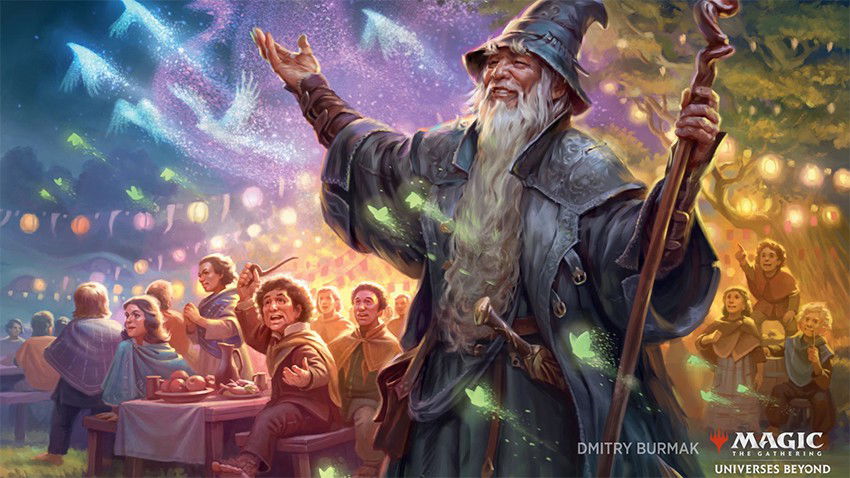
Like it or not, Universes Beyond is here to stay, at least for a few years. For every negative reception on social media, a dozen fans of the franchises that Magic partners with are excited by the idea of seeing their favorite characters and scenes featured in one of the most famous card games in the world - and Lord of the Rings: Tales of Middle-earth is proof that these partnerships work for commercial purposes and for reaching more potential consumers.
As a community, the ideal is that we accept with open arms the new players who discover Magic through this product, without any need for statements or distorted logic that makes an individual feel that they are "worse" or "inferior" for knowing MTG through an external force. We all have discovered Magic from somewhere, regardless of how long we've been on this ship.
And since we're in the same boat, we also need to have awareness and autonomy to position ourselves, communicate, report and even alert this new clientele about some of Wizards' less friendly or worrying practices regarding its main product. The game currently has a dozen problems, and if there is a reason for concern about this segment, it is that it will further flood the launch window to the point of alienating more people due to "perpetual hype" and unending announcements, an advertising and sales method that the company has adopted over the last three years.
This is not the end of Magic, its pillars remain the same. However, the partnership with Marvel will certainly leave a mark in the game's history.
Thanks for reading!

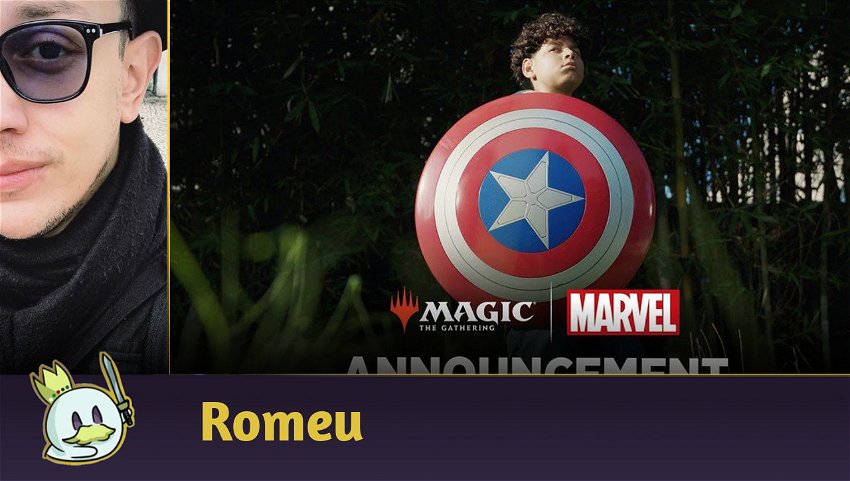






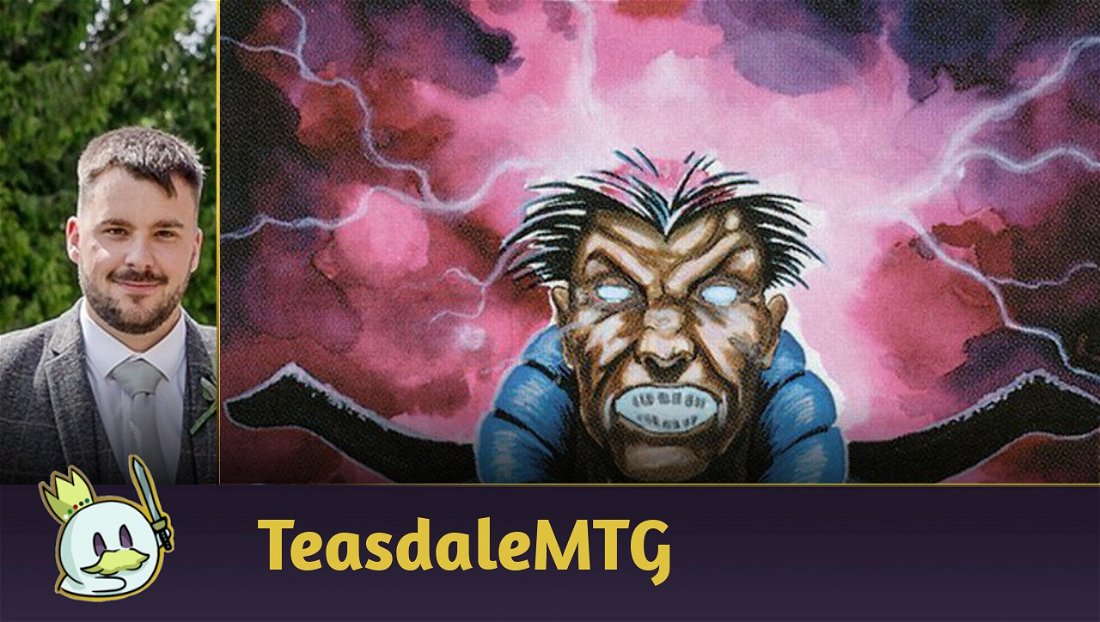
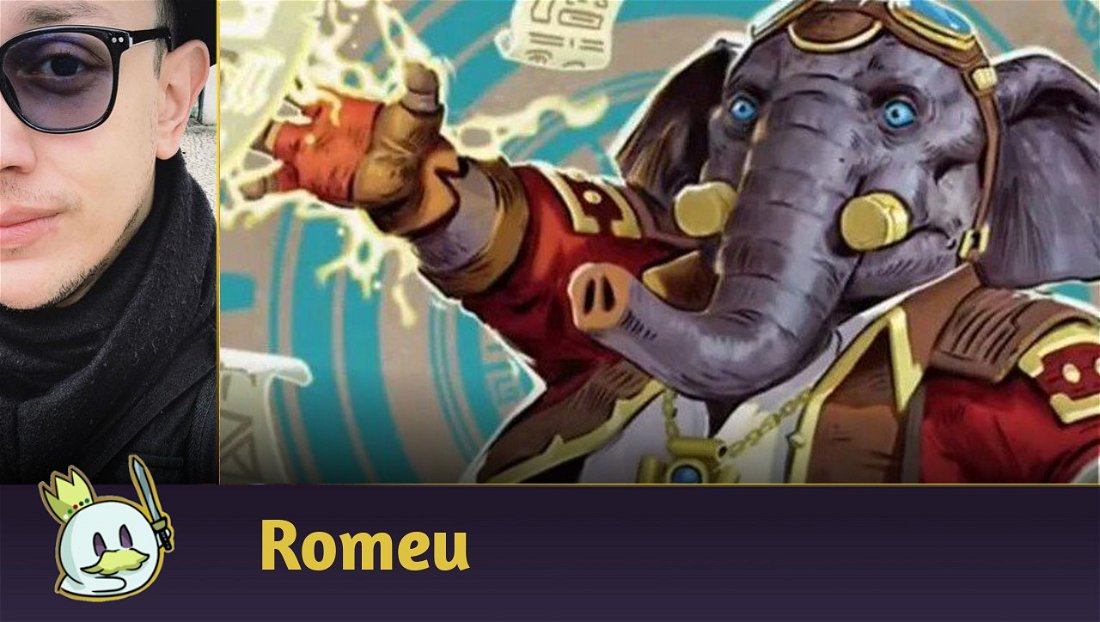



— Comentarios 0
, Reacciones 1
Se el primero en comentar